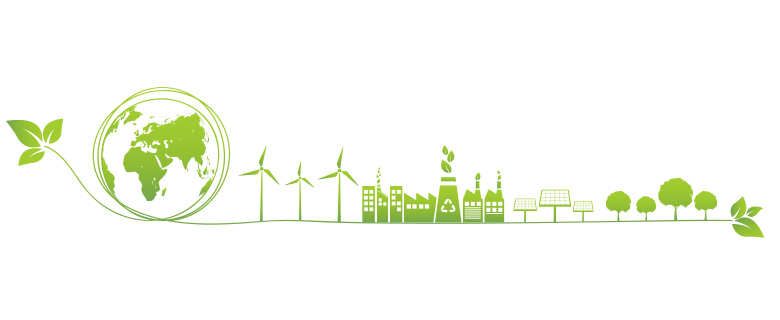
Qatar National Library (QNL) plays a pivotal role in promoting environmental culture and raising awareness of this critical issue through various initiatives, programs, and resources.
The library offers a wide range of printed and electronic resources in multiple languages, covering topics related to the environment and sustainability. These include climate change, renewable energy sources, sustainable agriculture and food systems, biodiversity conservation, waste management and recycling, sustainable transportation, sustainable building practices, conservation and management of water resources, environmental policy and governance, environmental justice and equity, and other related subjects. Click here to search our collection for books on sustainability. These resources are available free of charge to all library members, along with access to the latest research, international conference proceedings, articles, scientific journals, data, and graphs through the library's electronic resources and partnerships with international publishing houses.
Additionally, the Library holds monthly events for all age groups, centered around different educational topics, including environmental and sustainability issues. The Library has organized various activities on the topics of environment and sustainability, such as group discussion sessions, symposiums, panel discussions, workshops, awareness lectures, and documentary screenings. For instance, the Library has hosted a group discussion session on the role of public libraries in achieving sustainable development goals related to the environment in Qatar, a symposium entitled "Explore Nature: The Terrestrial and Marine Environment in the State of Qatar", and a panel discussion entitled "Qatari Youth Interaction with Environmental Issues". The Library has also organized workshops and lectures, such as "Environmental Sustainability in Islam", "The Importance of Studying Harsh Environments on Planet Earth", and "How to Make Sustainability Part of Our Daily Lives?". These events provide a platform for discussion and interaction, raising public awareness of environmental and sustainability issues.
The Library also screened a documentary film entitled "Living the Change: Inspiring Stories for a Sustainable Future", which showcased inspiring ways and methods for sustainable living. The Library held a discussion session on guidelines for starting the sustainability journey in Qatar and the risks posed by modern human activities. It also organized a session to learn about marine life and the impact of plastic pollution in Qatar, and a workshop for women gardening enthusiasts entitled "Beyond Organic Agriculture: Let's learn about sustainable gardening!".
The Library also organized a discussion session presented by the Doha Project for Environmental Initiatives titled "Guidelines for Starting the Sustainability Journey in Qatar". The aim of this session was to learn about marine life and the impact of plastic pollution in Qatar, and to provide simple solutions to contribute to solving the problem. Additionally, the Library held another discussion session presented by the executive team of The Hague International Model of the United Nations (THIMUN) in Qatar. The session centered on the risks posed by modern human activities, and how knowledge of the sustainable development goals approved by the United Nations can help correct those mistakes and contribute to achieving a better future.
The QNL building has several environmental sustainability aspects, including:
Energy efficiency: The Library has a building management system that monitors and controls energy usage. The lighting system for example is preprogrammed to automatically dim the lights after the workhours and to dim even more during the Library closing time at night.
Water conservation: The QNL building uses water taps with sensors, this reduces the waste of water.
Waste reduction: The QNL building has a waste management program that includes recycling bins for different types of materials like paper, glass, cans, and food waste. The Library also utilize an e-waste system where we recycle electronic waste in collaboration with Qatar Foundation’s General Services department. The Library Conservation and Preservation Lab generates chemical waste that is also treated by the Library in collaboration with Qatar Foundation’s General Services department.
Natural light is another important aspect of environmental sustainability in the QNL building. The building's design maximizes the use of natural light to reduce the need for artificial lighting and minimize energy consumption. The glass façade allows natural light to reach the interior spaces, and the Library's reading areas in the main plaza are designed to take advantage of daylighting. In addition to the environmental benefits of natural light, it also has positive effects on the health and well-being of building occupants. Natural light has been shown to improve mood, increase productivity, and reduce stress levels, making it an important feature in sustainable building design.
Overall, the QNL demonstrates a commitment to environmental sustainability through its collections, events, and the building design and operation.

Add new comment